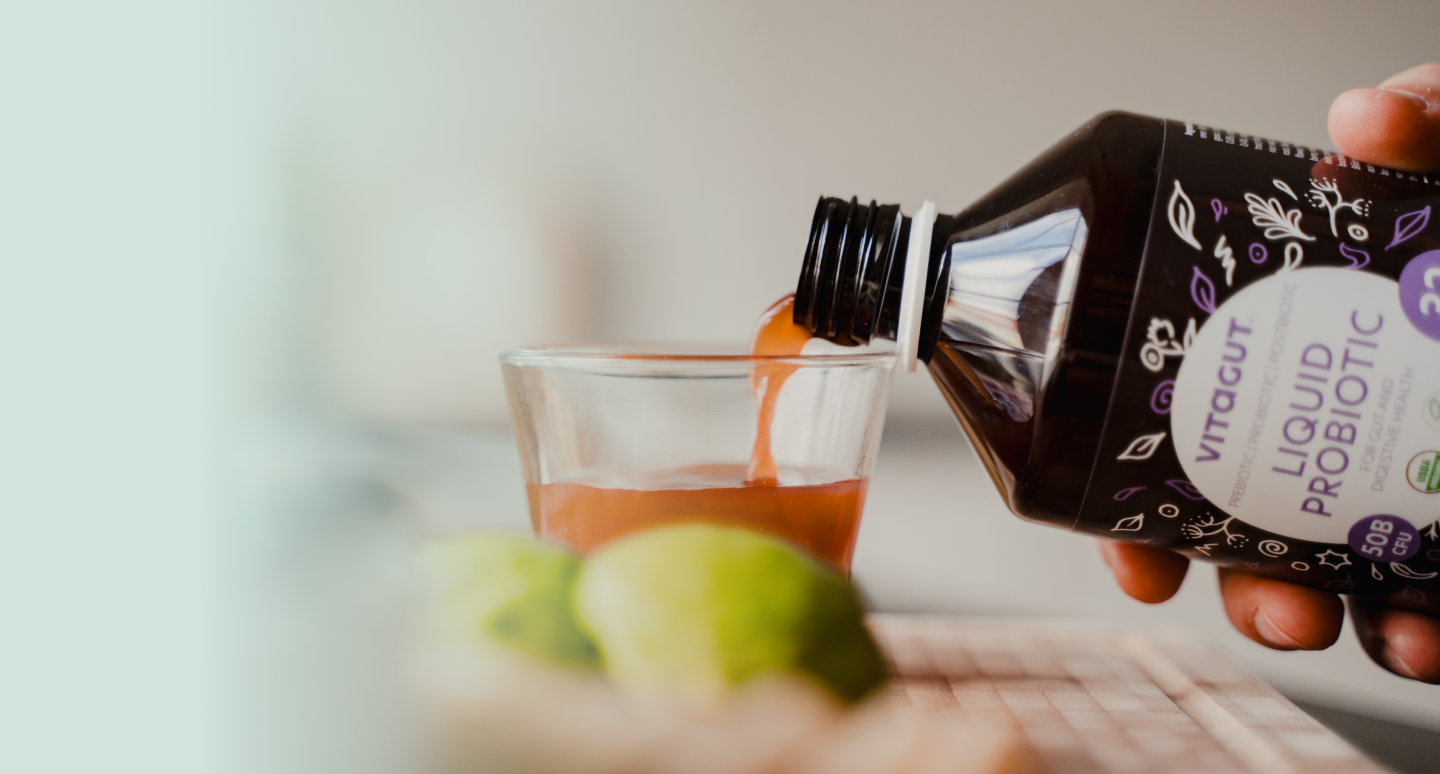
Natural Gut Support
for Optimal Health
Unlock the power of 100% natural fermentation and live bacteria cultures
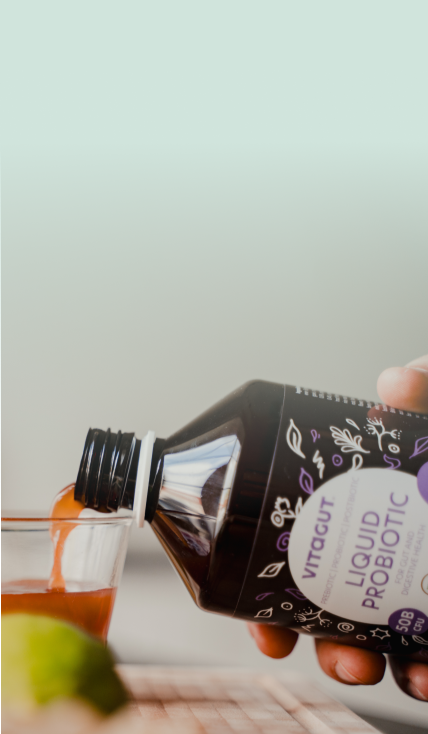
Natural Gut Support
for Optimal Health
Unlock the power of 100% natural fermentation and live bacteria cultures

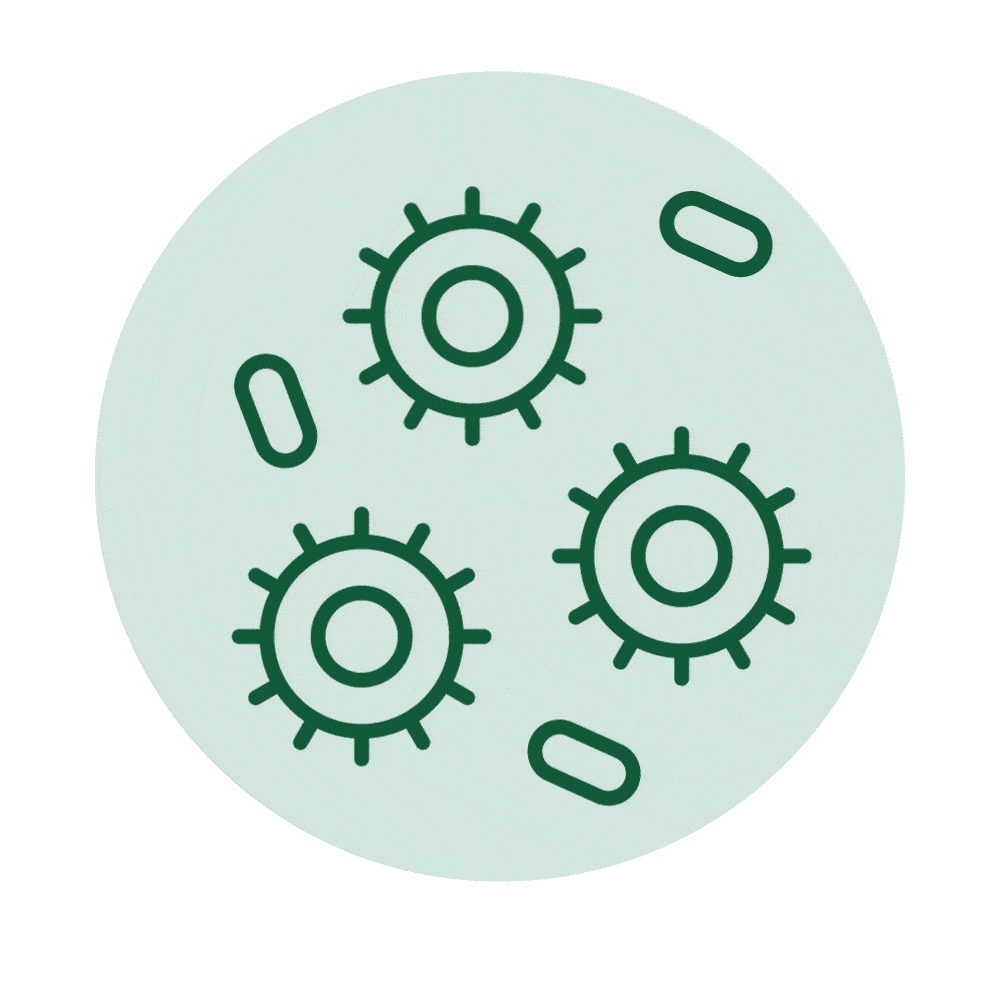

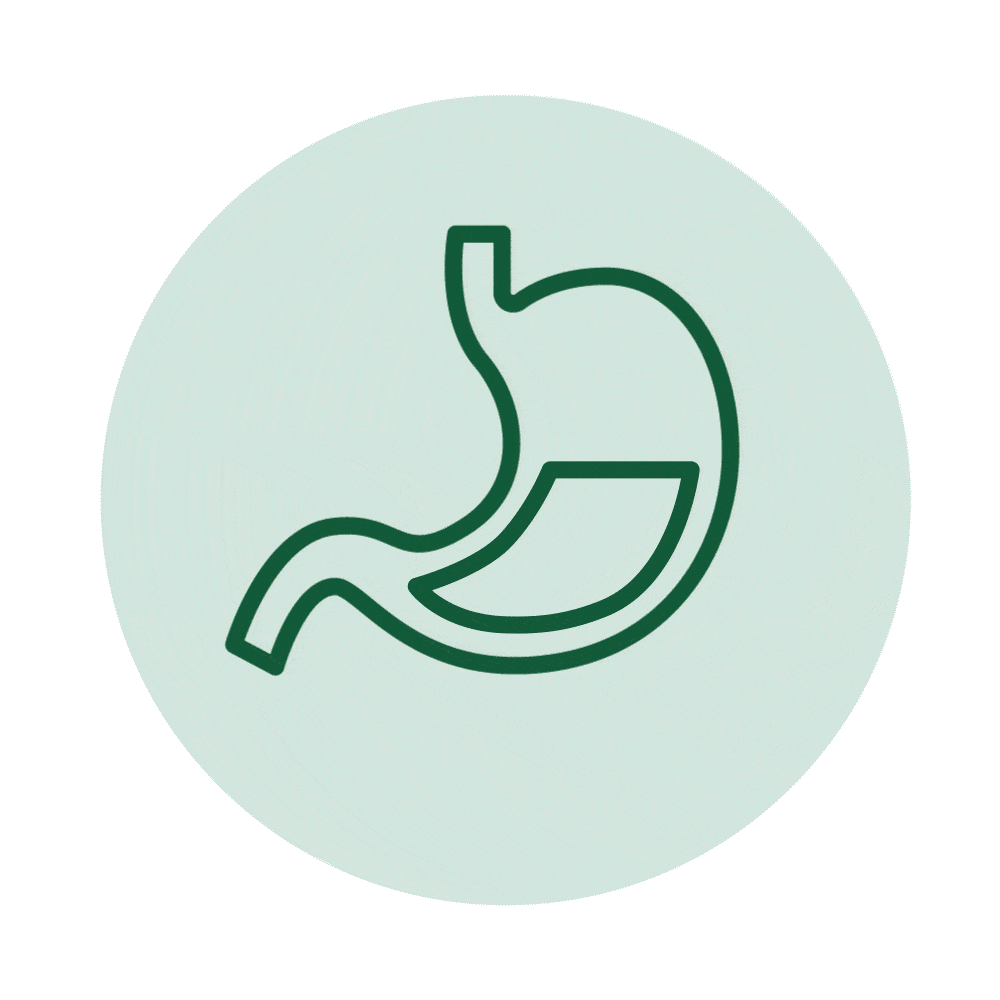






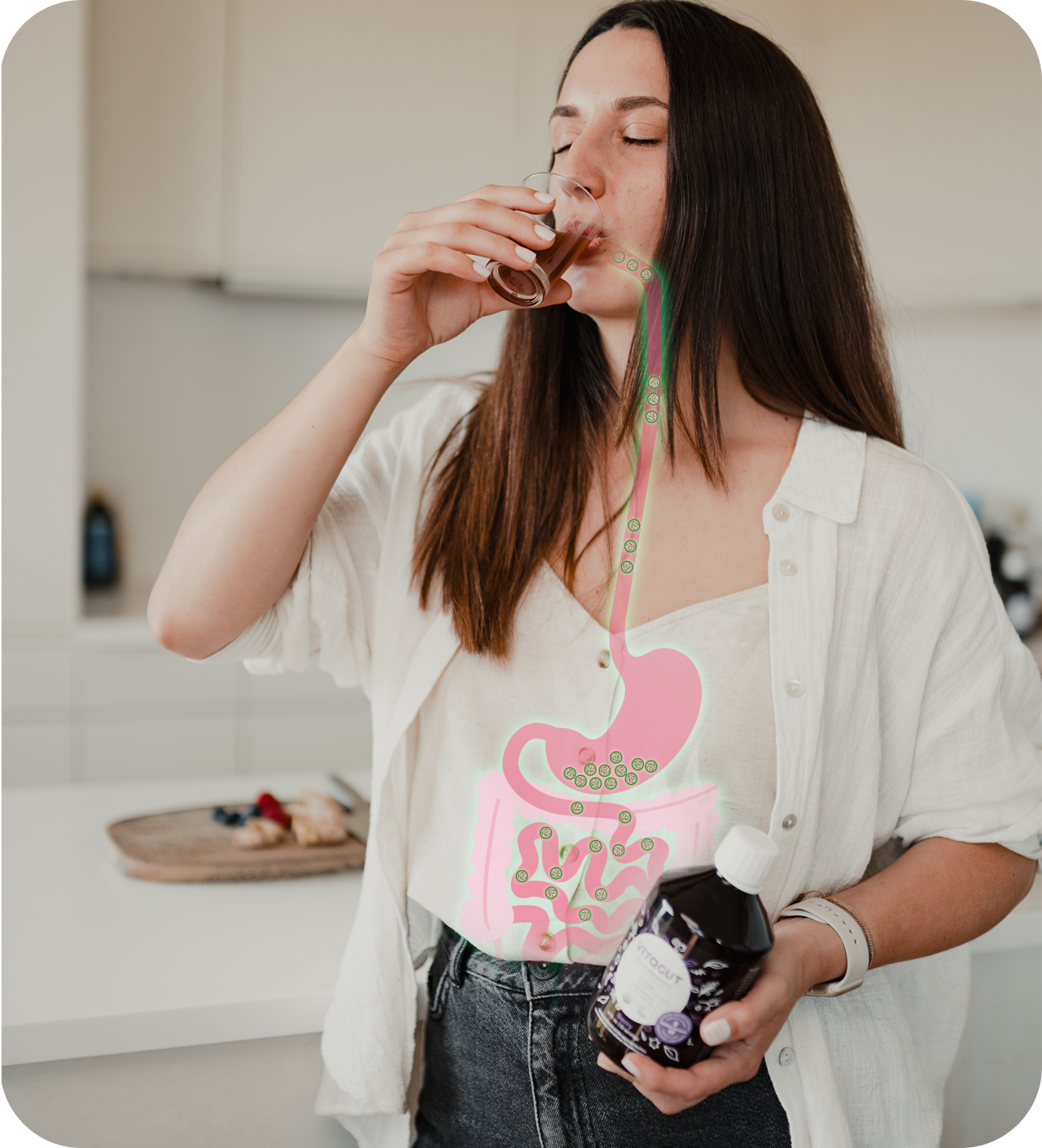
Our organic fermented drink supports your microbiome throughout and beyond the entire digestive system*
3 in 1
19
100%
8

Our organic fermented drink supports your microbiome throughout and beyond the entire digestive system*
3 in 1
19
100%
8
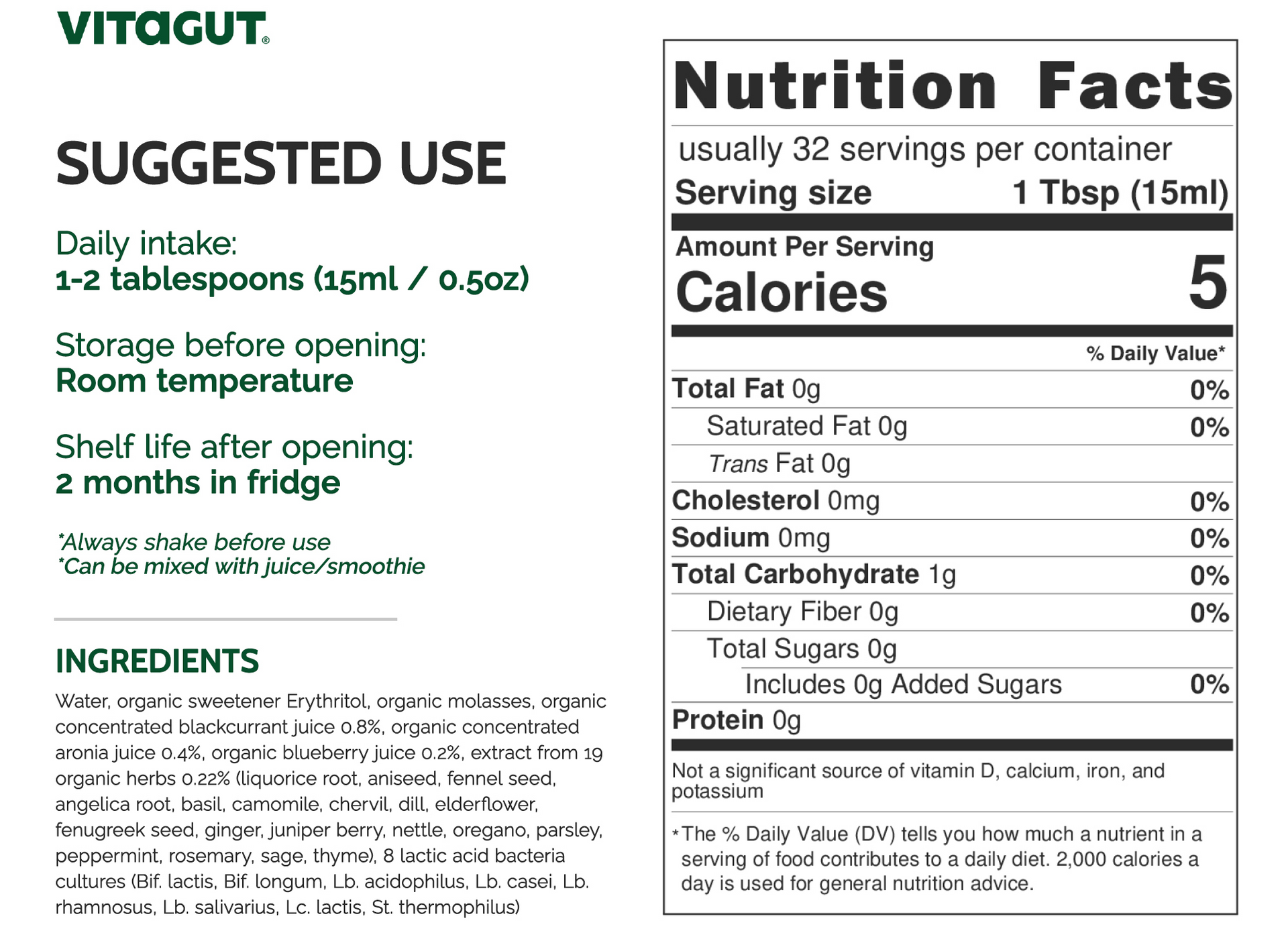
Everyone's new favourite
Everyone's new favourite
The health community is loving VITAGUT!
The health community is loving VITAGUT!
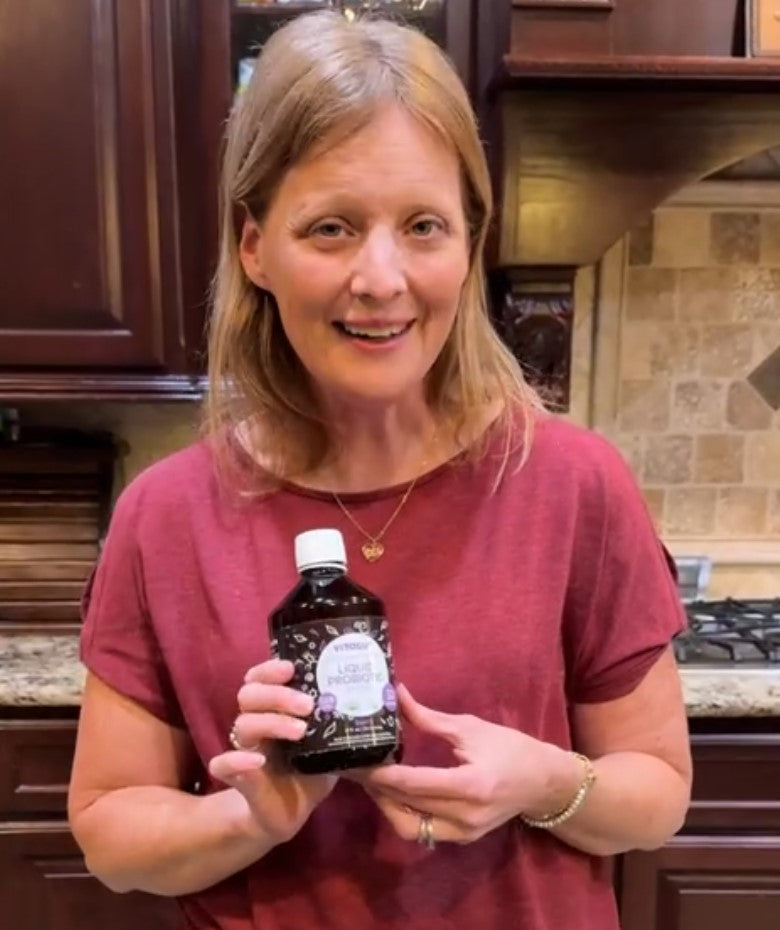

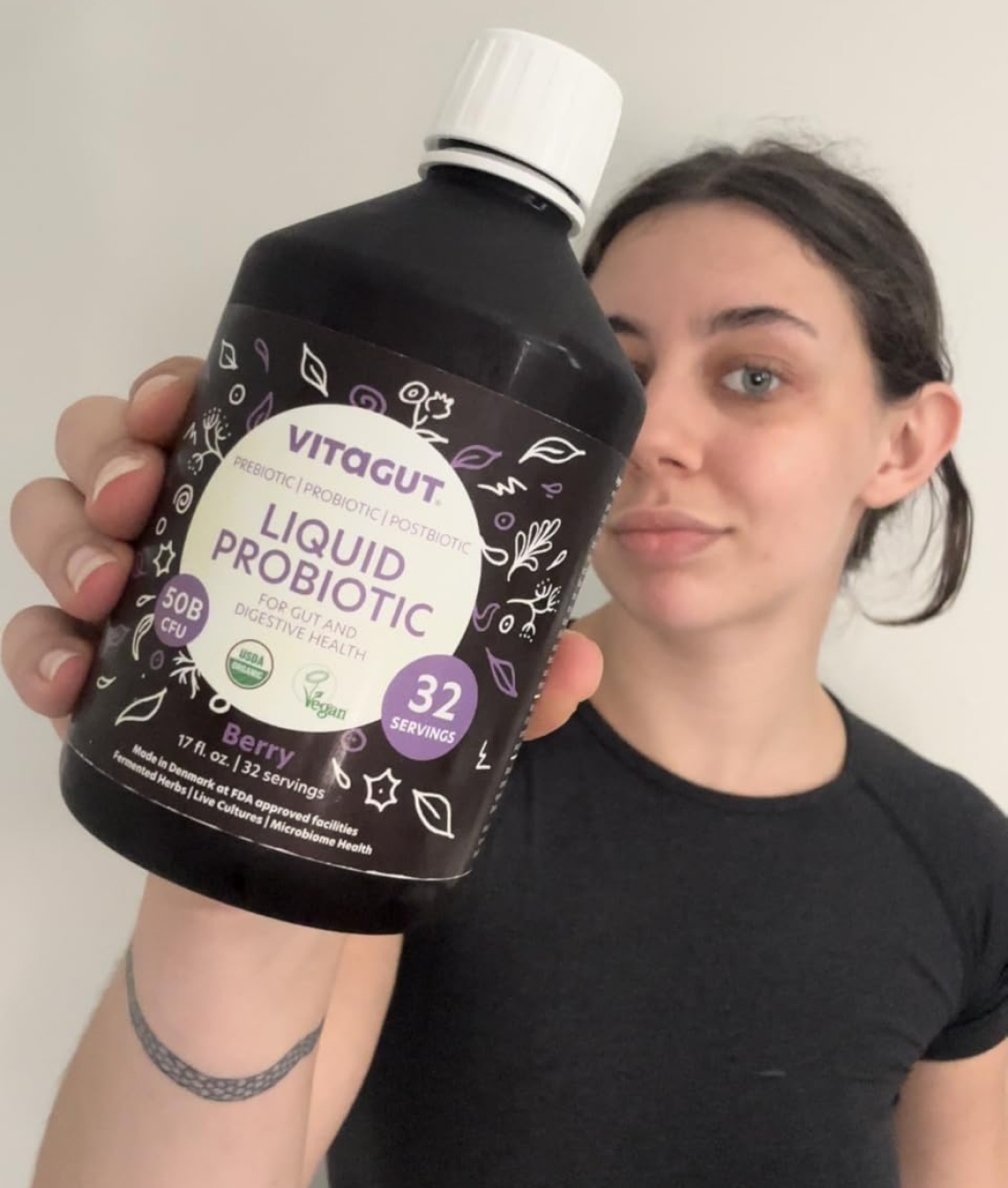

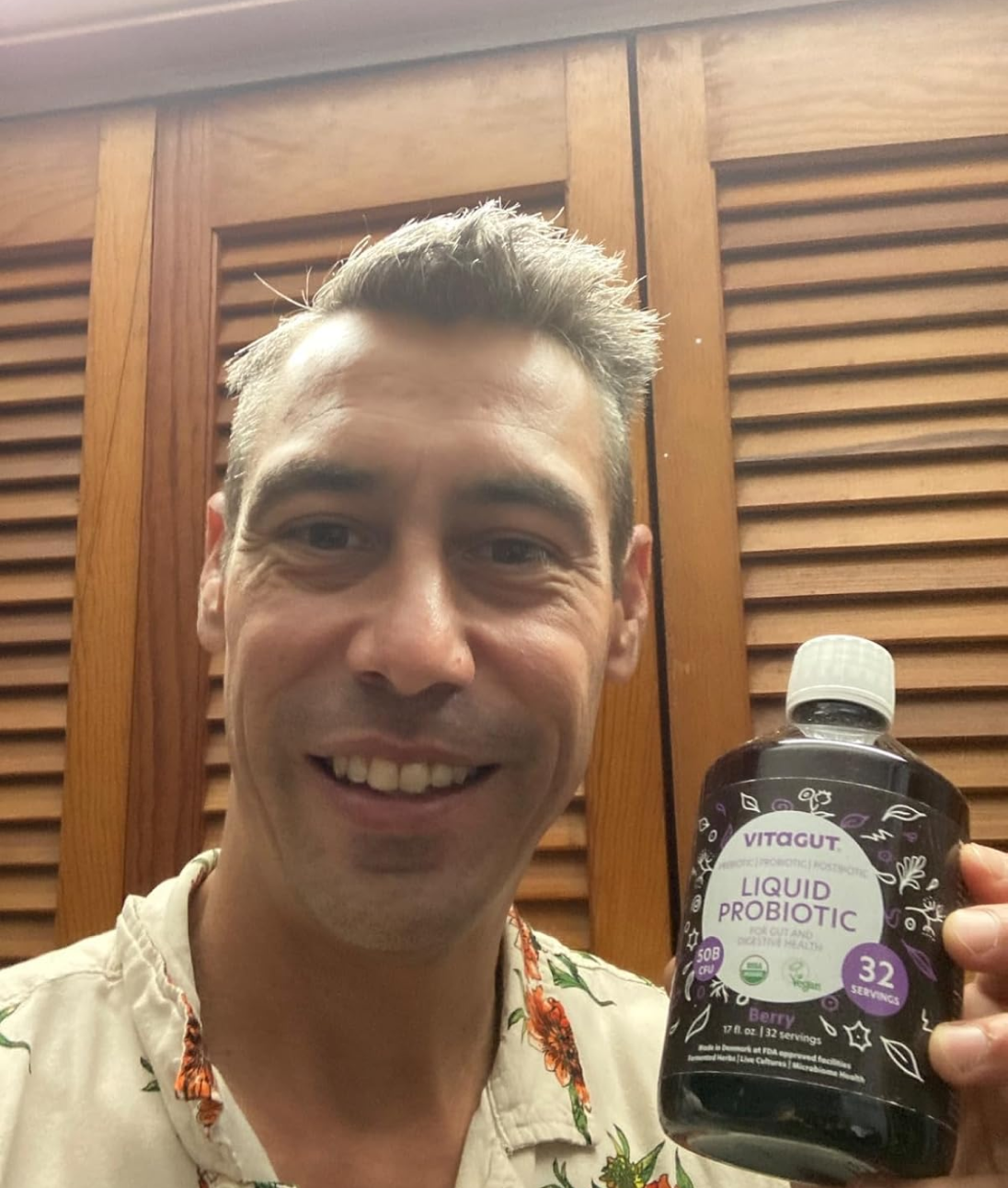



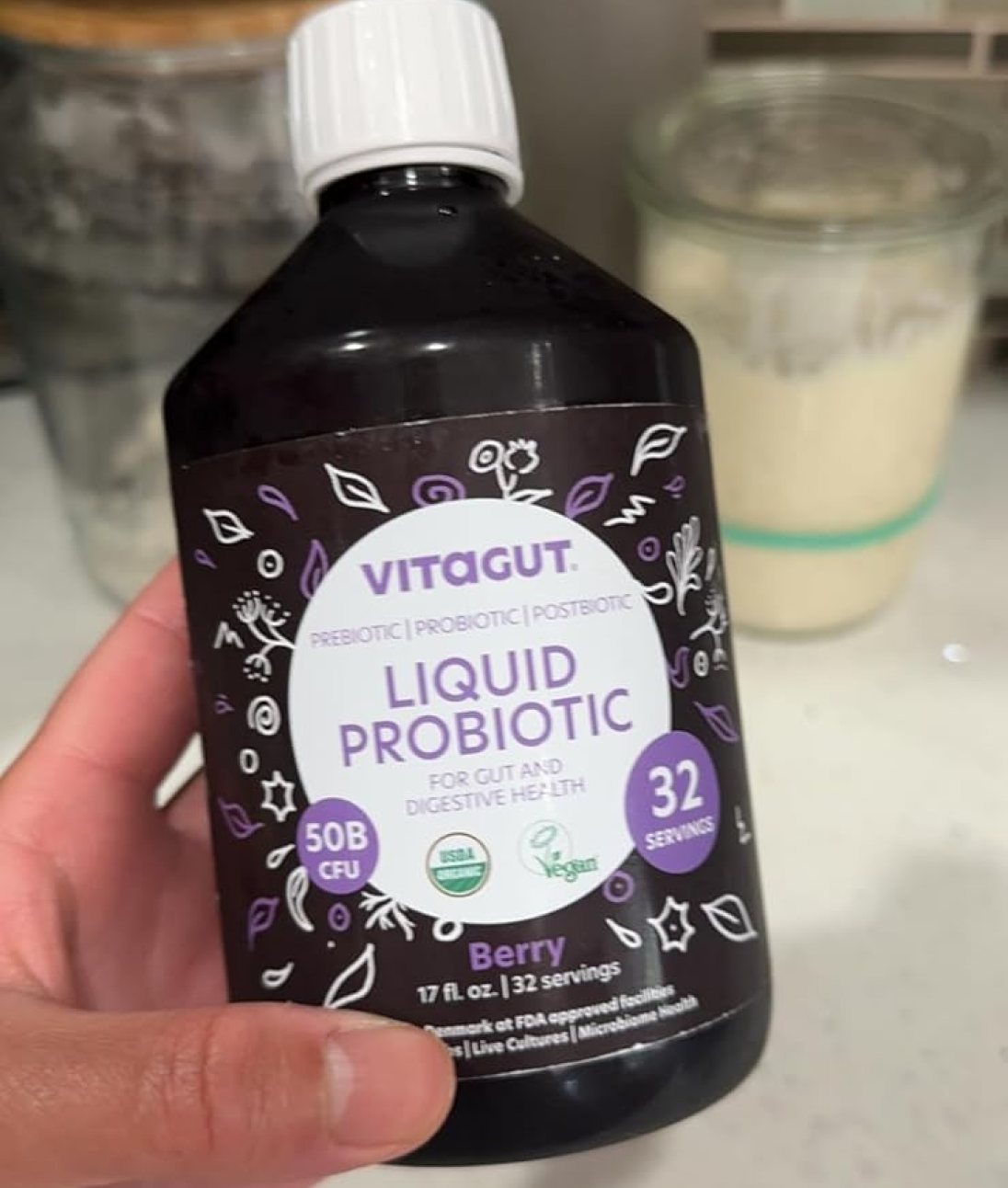

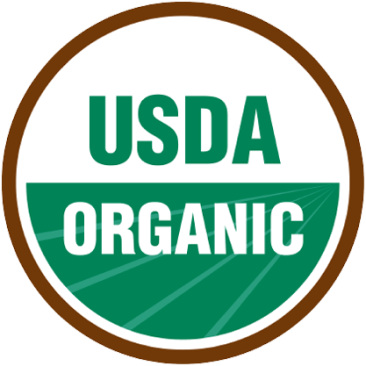


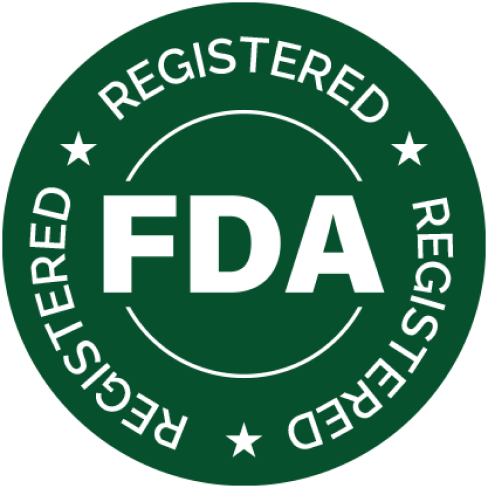
Swap Artificial for Natural
Swap Artificial for Natural
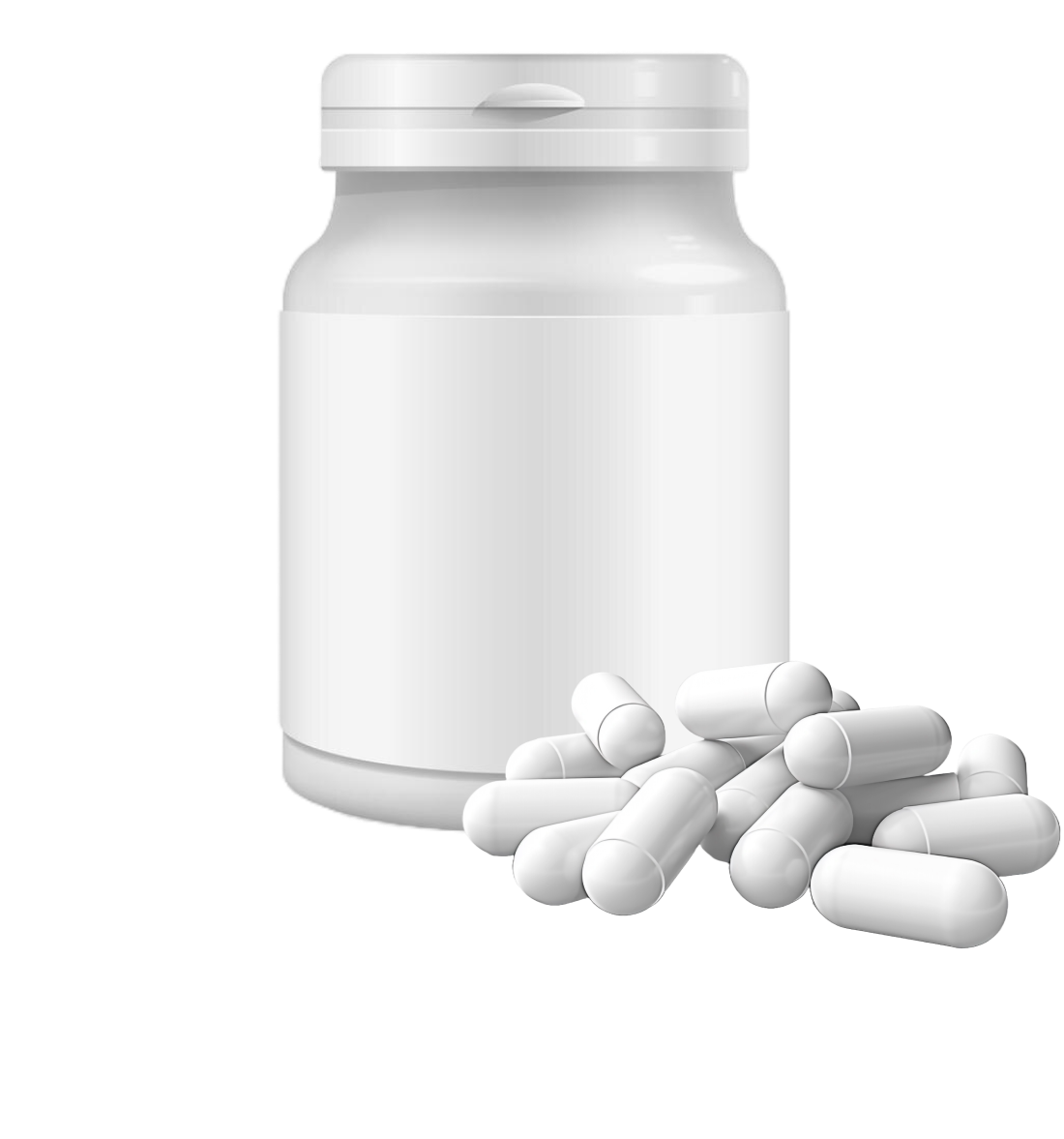





Any Questions?
Any Questions?
The ingredients in VITAGUT have been shown to improve digestion and symptoms of ibs, leaky gut, bloating, and overall gut health within weeks of consistent use. Long-term benefits can include improved mood, immunity, and metabolism as well as an improved gut microbiome.*
Liquid fermented probiotics exist in a live, natural, and acidic state, making them more readily absorbed by the body (bioavailable), thereby enhancing their viability and effectiveness.
The specific CFU count in a probiotic supplement isn't as crucial as the viability of the bacteria within the product. Many probiotic capsules and tablets contain high CFU counts because they know that a significant portion of the bacteria may not survive the digestive process.*
Our liquid probiotic contains 8 different lactic acid bacteria cultures, which are: Bifidobacterium lactis, bifidobacterium longum, lactobacillus acidophilus, lactobacillus casei, lactobacillus rhamnosus, lactobacillus salivarius, lactococcus lactis, s.t. thermophilus.
Water, organic sweetener Erythritol, organic molasses, organic concentrated blackcurrant juice 0.8%, organic concentrated aronia juice 0.4%, organic blueberry juice 0.2%, extract from 19 organic herbs 0.22% (liquorice root, aniseed, fennel seed, angelica root, basil, camomile, chervil, dill, elderflower, fenugreek seed, ginger, juniper berry, nettle, oregano, parsley, peppermint, rosemary, sage, thyme), 8 lactic acid bacteria cultures (Bif. lactis, Bif. longum, Lb. acidophilus, Lb. casei, Lb. rhamnosus, Lb. salivarius, Lc. lactis, St. thermophilus)
Postbiotics are beneficial compounds produced by probiotic bacteria during fermentation, offering health advantages for the gut and overall wellness. Put simply, prebiotics feed probiotics, which produce health-boosting postbiotics in your gut during fermentation.*
As we're committed to using only naturally derived ingredients, VITAGUT has a 100% natural, fermented flavor. The flavor stems from organic acids produced during fermentation, giving it a taste that's akin to kombucha or apple cider vinegar.
Yes, you can mix VITAGUT with other liquids, such as juice or smoothies. Just make sure you mix it right before you drink it.
The suggested serving is 20-30 ml per day, but you can easily drink more if you feel like it. For new users, we suggest starting with a smaller serving size (10-15 ml per day), and then slowly progressing to 20-30 ml per day.*
Yes, VITAGUT is safe to drink for kids. We suggest starting with a smaller serving size (5-10 ml per day), and then slowly ease into the regular serving size of 20-30 ml per day.*
Couldn't load pickup availability
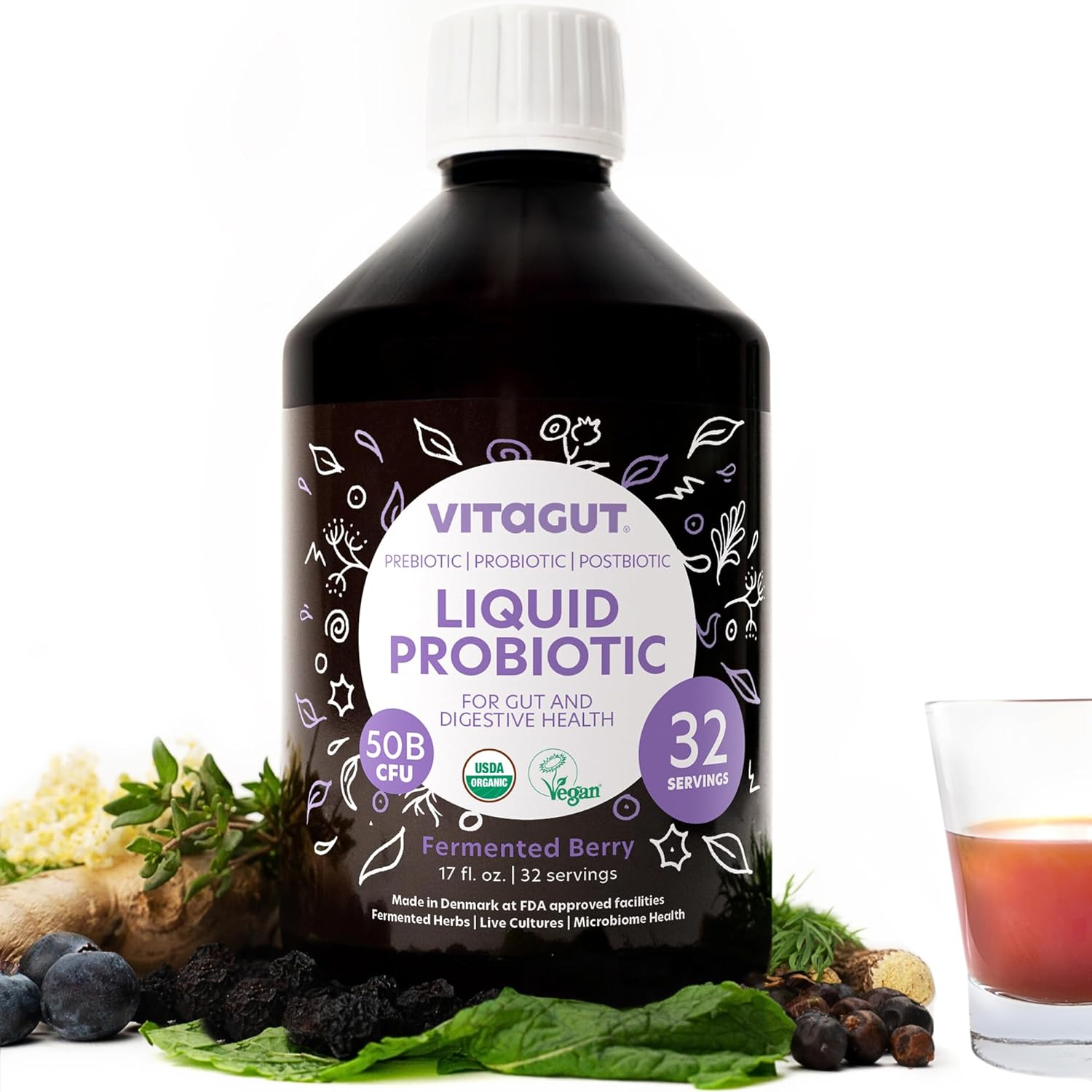
Couldn't load pickup availability




